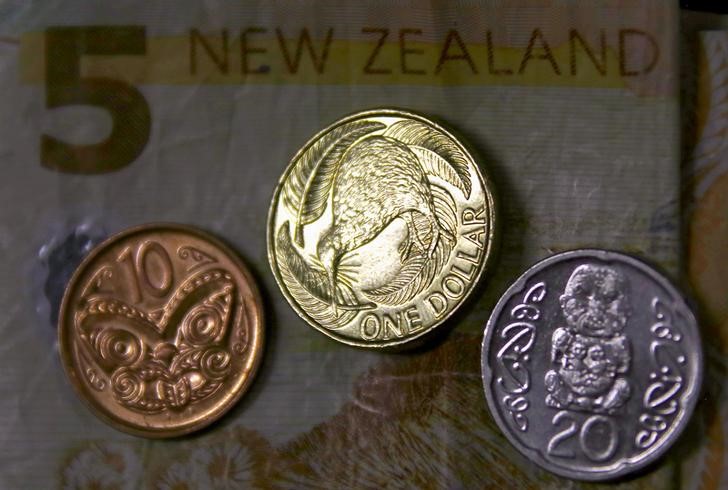By Rebecca Howard
WELLINGTON, Oct 19 (Reuters) - The New Zealand dollar, or kiwi, looks to be heading for a fall after outpacing many peers for much of this year.
Until early September, the kiwi NZD= was up almost 10 percent against the U.S. dollar for the year, but it has dropped 4 percent since then and is also longer knocking on the door of parity with the Aussie AUD= .
Supporting the kiwi for most of the year have been the country's interest rates, which are higher than the negative or ultra low rates in Japan, Europe and the United States.
However, these interest rate differentials are likely to narrow, which is taking some the shine off New Zealand's dollar.
The Reserve Bank of New Zealand is tipped to cut interest rates at its next policy meeting on Nov. 10, as annual inflation of 0.2 percent in the third quarter was well below the central bank's target of 1 percent to 3 percent. central bank cut the rate by 25 basis points to 2.00 percent in August.
PATH OF LEAST RESISTANCE
Meanwhile, investors are betting that the Federal Reserve will lift U.S. rates in December.
"With increasing conviction of a December Fed hike and further tightening next year, the path of least resistance is a weaker NZD on a 6-12 month view," BNZ currency strategist Jason Wong wrote in a note published on Tuesday.
However, a fall by the kiwi is unlikely to be sharp, with analysts predicting a slow, steady decline. Even if the central bank cuts to a record low 1.75 percent, the relative rate differential will still be high for quite some time given uncertainty around what the Fed will do in 2017.
"Our projections reflect a battle between negative global forces and positive domestic forces, with the net result being a modestly depreciating NZD path," said Wong.
In the second quarter, New Zealand's economy grew 3.6 percent from a year earlier, and recent data pointed to solid manufacturing activity, consumer confidence at a more than 15-month high and an ongoing pick-up in job creation. Improving dairy prices have also helped underpin the kiwi. senior economist Asia-Pacific Guy Bruten said he too did not expect a sharp fall in the New Zealand dollar, but added that "risks remain tilted to the downside".
